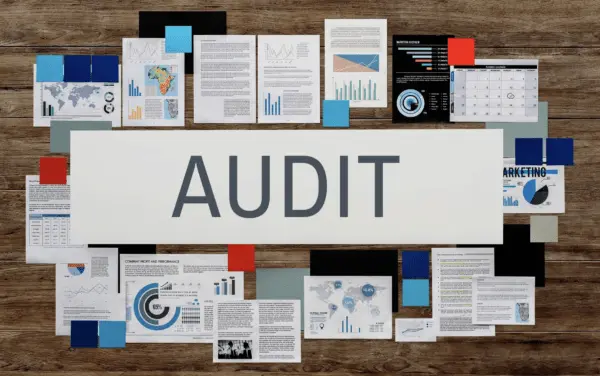WELL-BEING AT WORK: PHARMACEUTICAL INDUSTRY MANAGERS AS REMEDIES FOR EMPLOYEE ILLS
Every year, Quality of Life at Work (QWL) week is a reminder that employees well-being is not a luxury, but an investment. Far from being a simple philanthropic issue, QWL is a proven competitive lever: more attractive companies, more committed employees, higher productivity. These arguments are leading to a proliferation of QWL initiatives, but the philosophy remains difficult to establish in the long term. This is particularly true of pharmaceutical manufacturers, who are facing specific challenges. The major changes currently taking place in the sector provide a relevant case study. The upheavals (relocation, restructuring, mergers and acquisitions, massive recruitment, etc.) mean that sustaining a QWL culture is no longer an option, but a necessity to ensure the success of the transformations. Against this backdrop of change, how can drug manufacturers safeguard the mental health of their teams and promote the fulfilment of their managers, who are the guarantors of performance?
MANAGING TEAMS WITH CARE
He is one of the company’s figureheads, the bearer of its colours and values. They are the ones who pass on the directives and practices endorsed by the entire management team. They ensure that these are applied in order to meet performance targets.
The stakes involved in this pivotal role are often a source of pressure, fuelling stress that can have an impact on employees. Because of the manager’s position in the hierarchy, his active involvement in the decision-making process and his role as a transmitter of information, he is (increasingly!) seen as being responsible for the mental health of the people he supervises.
In fact, studies into well-being at work regularly highlight employee/manager relations as the source of ill-being in the workplace. For example, the Malakoff Humanis “Absenteeism 2023” barometer shows rising figures:
- 50% of employees have been off work at least once during the year, the highest level since 2016.
- The proportion of long stoppages (more than 30 days) due to psychological problems has more than doubled (31% of companies are affected by this phenomenon).
- The study also shows that employees who have taken time off work for psychological reasons in the last 12 months blame their work environment and managerial practices.
The reindustrialisation currently taking place in the region is having its share of repercussions for players in the sector. In this context, how can managers achieve their objectives while respecting the delicate balance between the company’s policy and the meaning that employees wish to give to their work, and above all while preserving their health?

The role of the manager in promoting well-being at work during a period of transition
Above all, managers must approach their mission with sincerity. Authentic leadership is recognised as a lever for well-being. The QWL approach is therefore an incentive to remain oneself in one’s duties and to be in line with one’s values and deepest convictions (principle of coherence).
Self-awareness (knowing one’s strengths, weaknesses, values, motivations, etc.) helps to ensure this posture. It naturally leads to an open and honest management style, based on trust and mutual respect. Authentic leaders delegate tasks and encourage autonomy. They are as focused on results as they are on the well-being of their employees.
In addition to this approach, they can work with their teams in 4 different roles:
The role of leader is one in which the manager is a team leader who stimulates autonomy and initiative-taking. Finally, as provided for in the collective agreement on well-being at work (2020), they must recognise and value their work.
The role of organisational support consists, in practice, of maintaining a close operational relationship, but also of developing and supporting employees through individual and group coaching, training, the allocation of resources or the creation of ergonomic and pleasant workstations. He is a great believer in teamwork and cohesion.
The role of emotional support. According to a 2023 Forrester study for Indeed, a manager’s empathy plays a major role in the well-being of employees, who mainly expect him or her to listen (62%) and provide support (49%) in difficult situations. Career development is also one of the issues they want to discuss (25%). To respond to these situations, the manager can rely on a compassionate stance, as well as active listening and openness to dialogue. They need to be able to help employees adapt to change. In practical terms, this means, for example, encouraging them to express their feelings.
As a communicator, you need to be able to engage in a friendly exchange, based on active listening, and to pass on clear, transparent information, with no double-talk. Of course, this also means showing respect and confidence in their teams.
This palette can be used as a tool to stimulate the 4 key objectives of QWL:
- Encouraging employee autonomy and empowerment;
- Develop clear and transparent communication;
- Encouraging trust, collaboration and teamwork;
- Implement stress and RPS prevention measures.
Adapting your management style to the realities of the pharmaceutical sector
The pharmaceutical sector presents unique challenges and opportunities for managing quality of life at work (QWL). To adapt to these realities, managers need to adopt an appropriate posture, taking into account the particularities of the field.
Strict regulatory requirements: managers need to provide additional support (operational, organisational and emotional), foster open communication and create a climate of trust to help employees navigate a complex, legislated environment.
Complex manufacturing processes: clear training, adequate resources and tools, and an environment where employees feel comfortable reporting problems and asking for help, are essential to ensure accuracy and quality.
Operator safety: rigorous safety programmes, appropriate training and a safety culture where employees feel comfortable reporting hazards and asking for help are essential to protect workers.
Teamwork and collaboration: fostering a cooperative environment where employees feel comfortable sharing ideas and working together. Effective communication and coordination between different teams is crucial to achieving common goals.
Work-life balance: promoting practices such as teleworking, flexible working hours and paid leave, while ensuring that employees take time to rest and discouraging presenteeism, is essential for the well-being of staff in a demanding sector.
By adapting their management style to these specific realities, managers can create a working environment that is more conducive to fulfilment and commitment.
The manager's QWL first aid kit
The Malakoff Humanis 2023 Barometer on Employee Health and Quality of Life at Work reveals figures that are symptomatic of a hierarchical model that has run out of steam: in 2023, 53% of managers had recourse to sick leave. This is 13 percentage points more than in 2022.
The report highlights the fact that managers are doubly affected by absenteeism. They are the first to absorb the consequences of an employee’s absence: 36% of them take on the duties and tasks until the employee returns or is replaced. If they think they are supporting the team at this time, they are the ones who suffer.
So, while their status means that they are considered to be responsible for the impact of organisational change, they themselves are just as affected by its effects. After all, the manager is also an employee.
Reconsidering verticality
Marie Pezé, psychologist and specialist in suffering in the workplace, analyses the links between suffering and management. She explains that managers are involved in a typically French vertical hierarchy, which leaves little room for spontaneity, initiative and time for sincere, natural exchanges.
When managers feel uncomfortable participating in this type of work organisation, they may initially go into a kind of “self-medication mode”. This consists of taking a step back and using ethics to reflect on the situation and then providing constructive feedback.
A properly thought-out QWL approach that can be used by employees should, for example, provide them with support and clarify their role during these transitional phases. The introduction of an HR framework can help to frame the actions to be taken when teams have to operate in downgraded mode.
In her view, this starts with the need to develop social links more naturally. By this she means making relationships less conditional on artificial encounters (afters-work, assigned offices, etc.) and allowing random time to develop so that everyone can build relationships in their own way.
This point of view is similar to that of Franck Bietry and Jordan Creusier, whose work in 2013 highlighted the four relationships around which well-being at work is organised:
the positive relationship with work colleagues
the positive relationship with the manager
a positive relationship with social time;
a positive relationship with the work environment.
Prescribing preventive treatment to managers...
A number of anticipatory measures can be put in place to look after managers as part of a QWL policy:
- Firstly, raising awareness of QWL issues. This can be done through training (stress management techniques, time management, training, leadership, burnout prevention, manager training, etc.).
- Individual support, through the introduction of regular one-to-one interviews with a line manager or coach, health or psychological check-ups or the creation of a mentoring system between managers.
- Improving working conditions by, for example, lightening their workload, leaving room for autonomy and making their working environment more comfortable (ergonomic workstations, access to relaxation areas, etc.). This optimisation work can be carried out via an organisational audit, for example.
... and give them the same dosage as everyone else
- Recognition and appreciation of work, with the introduction of a system for recognising individual and collective performance, appreciation of managers’ initiatives in terms of QWL, and openness to their professional development.
- Work-life balance by introducing flexible working hours, encouraging employees to take time off, and offering childcare and home-help services.
LUGAN CONSULTING'S MAnAGEMEnT TRAcKS
Example of good QWL practice in the pharmaceutical sector
Unither, the Contract Development and Manufacturing Organization (CDMO) for unidoses based in Coutances, Normandy, is a case in point, highlighted by ANACT (Agence Nationale pour l’Amélioration des Conditions de Vie au Travail).
Laurent Demagnez, the group’s HR manager, highlights the success of the QWL policy introduced at the Normandy plant. This can be measured by concrete indicators such as batch release times and the OEE (Overall Equipment Effectiveness). However, he stresses the importance of going beyond operational indicators and also measuring the way in which employees do their jobs.
In his view, managerial leverage is one of the pillars of a successful QWL policy: involving managers is essential. While respecting the personality of each individual, he confirms that it is possible to instil the company’s QWL practices in them via training courses or discussion forums.
These good managerial practices, which contribute to the sustainability of QOL, can be summarised as follows:
- Knowing what work is being done:
- Ensuring that operational teams are able to do their job properly in the long term;
- Create a climate of dialogue, encourage employees to express themselves and make proposals;
- Create the right conditions for experimentation;
- Recognise the work that has been done.
In addition to the manager’s involvement, the company must create a certain number of fertile conditions to enable the QWL philosophy to flourish:
- The company must be convinced that innovation and expertise, the pillars of its strategy, depend on individuals.
- Social dialogue and openness to society must be at the heart of the QWL policy
Managers and QWL have one thing in common: they are each a pillar of the long-term future of companies and the health of their employees. QWL week should be an opportunity to question the effectiveness of actions, identify sources of improvement and rethink the place of well-being at the heart of corporate strategy. It is part of a continuous improvement process.
LUGAN CONSULTING can work with you throughout the year to set up or consolidate your QWL initiatives or support managers in developing best practice and self-awareness.
EMBED A LASTING QVT CULTURE IN YOUR COMPANY
Sources
Collective agreement on well-being at work in the pharmaceutical industry
Institut de l’entreprise citizen workshops
Anact: QWL reference framework
Forrester / Indeed report: Well-being in France
Marie Pezé: What are the links between management and suffering at work?
Franck Biétry and Jordan Creusier – Well-being at work: the contribution of a profile study
Franck Biétry and Jordan Creusier – Proposal for a scale to measure positive well-being at work.










